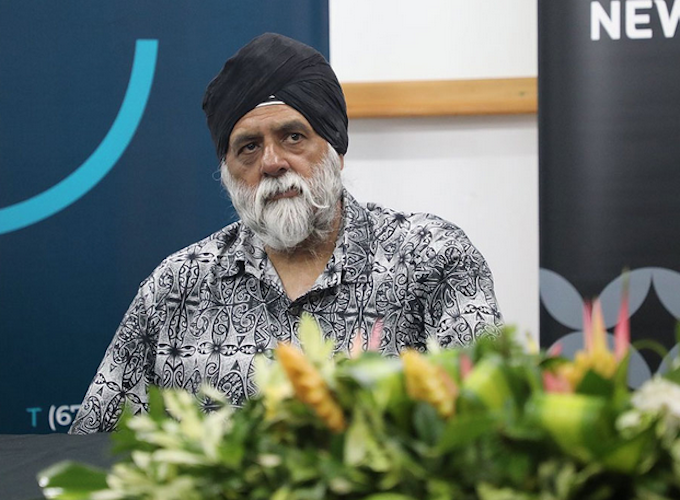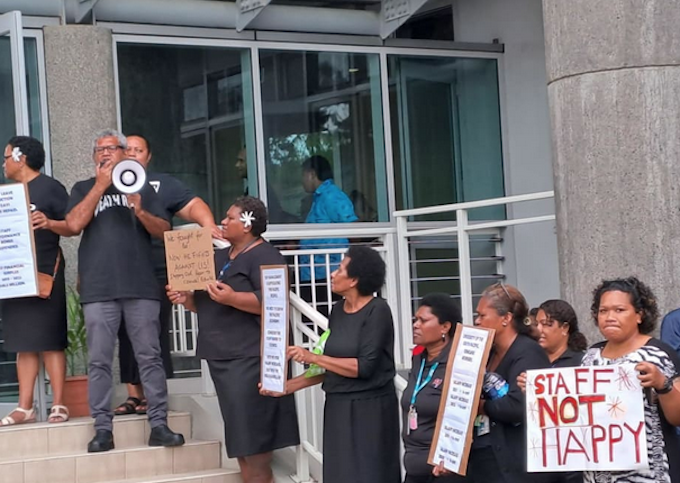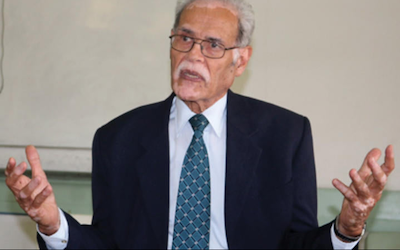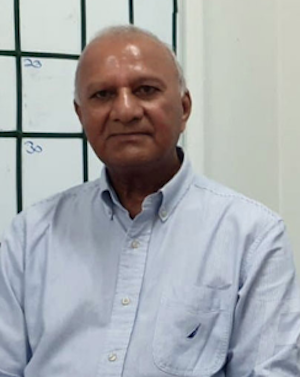Ralph welcomes Professor Theodore Postol, Professor Emeritus of Science, Technology and National Security Policy at MIT. We discuss the conflicts in Ukraine and Israel/ Palestine and breakdown what the weaponry being used in both conflicts tells us about the intentions and capabilities of all parties involved. Plus, Ralph answers listener questions!
Theodore Postol is Professor of Science, Technology and National Security Policy Emeritus in the Program in Science, Technology, and Society at MIT. His expertise is in nuclear weapon systems, including submarine warfare, applications of nuclear weapons, ballistic missile defense, and ballistic missiles more generally. He previously worked as an analyst at the Office of Technology Assessment and as a science and policy adviser to the chief of naval operations. In 2016, he received the Garwin Prize from the Federation of American Scientists for his work in assessing and critiquing the government’s claims about missile defenses.
We have a very complicated situation. In some ways, there’s no right or wrong. There are different groups of people with deep ethnic commitments, and a central government in Kiev that has acted in a way that’s completely intolerant of a significant fraction of its own citizens who happen to be of Russian descent. And right from the beginning, there was hostility from the West.
Theodore Postol
There’s a long history of the central Ukrainian command not supporting their troops at the battlefront. This is a real problem with the troops. The morale of the troops has been tremendously affected in an adverse way by the sense that their military leadership is not concerned about their life. It’s one thing to ask a soldier to go risk their lives or lay down their life for their country and be providing everything you can to protect them and make it possible for them to fight. It’s another thing when you’re sending them to a certain death just because it looks good.
Theodore Postol
The people in leadership roles are clueless, to a point that it’s astonishing. The last situation that I know of historically where the leadership was so clueless was Tsar Nicholas II in 1917.
Theodore Postol
In Case You Haven’t Heard with Francesco DeSantis
News 4/23/24
1. According to AP, the United States has vetoed Palestine’s latest bid for full membership in the United Nations. The vote in the 15-member U.N. Security Council was 12 in favor, including close U.S. allies like France, Japan, and South Korea, with the U.K. and Switzerland opting to abstain. Only the United States voted against the resolution. If U.S. had not blocked the resolution, the question would have gone to the full U.N. General Assembly, where no country holds veto power. While the U.S. claims this vote “does not reflect opposition to Palestinian statehood,” these words obviously ring empty. Palestinian U.N. Ambassador Riyad Mansour told the council “The fact that this resolution did not pass will not break our will and it will not defeat our determination…The state of Palestine is inevitable. It is real.” 140 countries recognize Palestine. Palestine currently sits as a non-member observer state at the U.N.
2. Dr. Nadera Shalhoub-Kevorkian, a prominent Palestinian-American academic, was arrested at her home in Jerusalem last week, Democracy Now! reports. According to this report, Dr. Shalhoub-Kevorkian “was suspended by Hebrew University last month after saying in an interview Israel was committing genocide in Gaza.” Sarah Ihmoud, a co-founder of the Palestinian Feminist Collective who teaches at College of the Holy Cross is quoted saying “We see this as yet another example of Israel attacking Palestinians wherever they are, whoever they are. It underscores that no Palestinian is safe under Israel’s racist apartheid rule.” Now, Ryan Grim of the Intercept reports that Dr. Shalhoub-Kevorkian is communicating trough family that she is being tortured in Israeli custody. Maddeningly, it appears unlikely that President Biden will hold Israel to account for the possible torture of an American citizen.
3. Left-wing Israeli journalist Nimrod Flaschenberg reports Israeli refusenik Tal Mitnick and Sofia Orr “were both sentenced this week by the Israeli army to prison terms of 45 days+15 days probation. This will bring Sofia to a total of 85 days and Tal to 150. The Israeli army is relentless. But these brave kids are not about to give up.” This is Mr. Mitnick’s 4th term in military prison and Ms. Orr’s third, accoring to Pressenza. The international press agency further reports “probation is unprecedented and aims at deterring the refusers by enabling the military court to extend their next sentence beyond the 45-day limit…[and] In addition to Mitnick and Orr, conscientious objector Ben Arad is serving his first term of 20 days in prison.”
4. Much has been made of the recent pro-Palestine protests at Columbia University. Prem Thakker of the Intercept reports, organizers of these protests say over 50 Barnard students and over 30 Columbia students have been suspended, with Barnard students losing access to dining and housing services. Reports on the ground show the universities dumping students belongings in the street. At the protests themselves, organizers emphasize that Jewish and Muslim students shared prayer space, and stress “Columbia wants you to believe we are enemies to protect their genocidal investments, but there is no deeper solidarity.”
5. Following SUNY Binghampton’s adoption of a BDS resolution, New York State Legislators sent a letter to SUNY Chancellor John B. King calling for the expulsion of the student leaders behind that campaign. Moreover, this letter calls for “the ouster of any faculty and committee members who played a role in promoting or supporting this resolution.” This letter was signed by both Republican and Democratic state legislators in Albany. As prominent DSA member Aaron Narraph aptly put it, this campaign against the student activists constitutes “our very own mccarthyism.”
6. In more campus news, The Lens, a New Orleans based outlet, is out with a blistering report on LSU’s pay-for-play arrangement with fossil fuel companies. They write “For $5 million dollars, Louisiana’s flagship university will let an oil company help choose which faculty research projects move forward. Or, for $100,000, a corporation can participate in a research study, with ‘robust’ reviewing powers and access to resulting intellectual property.” This report links to documents that outline LSU’s fundraising pitch to oil and chemical companies, and “Records [which] show that after Shell donated $25 million in 2022 to LSU…the university gave the fossil-fuel corporation license to influence research and coursework for the university’s new concentration in carbon capture, use, and storage.” It is telling that, like pro-Palestine speech, the so-called campus free speech defenders are not standing up to corporate capture of research institutions.
7. Against the backdrop of escalating diplomatic tensions in Latin-America over Ecuador’s raid on the Mexican embassy, Progressive International reports “Ecuador [has voted] NO in the referendum on investor-state arbitration…rejecting President Noboa’s underhanded efforts to override the Constitution to protect foreign investors over labor rights, Indigenous communities, and environmental regulations.” The Investor-State Dispute System – which places international corporations on the same legal footing as sovereign governments and hands over adjudication to the World Trade Organization – has come under heavy fire by left-wing skeptics of so-called ‘free trade’ in recent years, contributing to the ultimate demise of the Trans-Pacific Partnership deal engineered in the late Obama era. The ISDS has had a particularly troubling history in Latin-America, with tobacco companies suing Uruguay over anti-smoking legislation to name just one example. At the same time however, Ecuador overwhelmingly passed an anti-gang referendum in a victory for Noboa, per Reuters. Expect to see more about Ecuador in the coming weeks.
8. Techcruch reports “Tesla is recalling all 3,878 Cybertrucks that it has shipped to date, due to a problem where the accelerator pedal can get stuck, putting drivers at risk of a crash, according to the National Highway Traffic Safety Administration.” This article goes on to say “The recall caps a tumultuous week for Tesla. The company laid off more than 10% of its workforce on Monday, and lost two of its highest-ranking executives.” The Guardian now reports that Tesla plans to cut prices on the Cybertrucks, which cost over $100,000 each. We beseech our listeners to be wary of these vehicles and to do thorough research on Tesla’s auto safety record.
9. In more transportation news, transportation blog Second Ave. Sagas reports “The feds are threatening to sue [New York City] if city vehicles [such as NYPD patrol SUVs] do not stop parking on sidewalks and crosswalks in ways that ‘impede the access of people with disabilities to pedestrian pathways.’” According to the Justice Department’s letter, “The City of New York (and, more specifically, the NYPD) has failed to ensure that the pedestrian grid is ‘readily accessible to and usable by individuals with disabilities,’… NYPD vehicles and the personal vehicles of NYPD employees frequently obstruct sidewalks and crosswalks in the vicinity of NYPD precincts…a recent study identified parking behaviors at 91% of the NYPD’s precincts that resulted in obstructions to sidewalks and crosswalks with the potential to render those pathways inaccessible.” We commend the Justice Department for taking action to ensure the ADA is enforced, even against the NYPD which routinely behaves as though it is above the law.
10. Finally, the United Autoworkers have prevailed in their union election at the Chattanooga Volkswagen plant, winning by an overwhelming 2,628 to 985 margin, per the Guardian. This marks the first time workers have unionized a foreign-owned auto plant in the South and serves as a repudiation of the anti-union campaign backed by Republican Governors such as Tennessee’s own Bill Lee. UAW President Shawn Fain responded to this campaign, saying “They’re liars…These politicians are showing that they’re just puppets for corporate America, and they don’t give a damn about working-class people. They don’t care about the workers being left behind even though the workers are the ones who elect them.” Seizing on the momentum of victory, said “The workers at VW are the first domino to fall. They have shown it is possible…I expect more of the same to come. Workers are fed up.” UAW now plans to target a Mercedes plant in Alabama; according to the union, “A supermajority of Mercedes-Benz workers have filed a petition with the…NLRB…for a vote to join the UAW.” As the Guardian notes, “Mercedes has been considerably more outspoken against the union than VW was, with a top Mercedes official telling workers: ‘I don’t believe the UAW can help us to be better.’” Yet Fain is confident, saying “At the end of the day, I believe that workers at Mercedes definitely want a union…and I believe a big majority there will vote in favor.”
This has been Francesco DeSantis, with In Case You Haven’t
Get full access to Ralph Nader Radio Hour at www.ralphnaderradiohour.com/subscribe
This content originally appeared on Ralph Nader Radio Hour and was authored by Ralph Nader.
This post was originally published on Radio Free.




